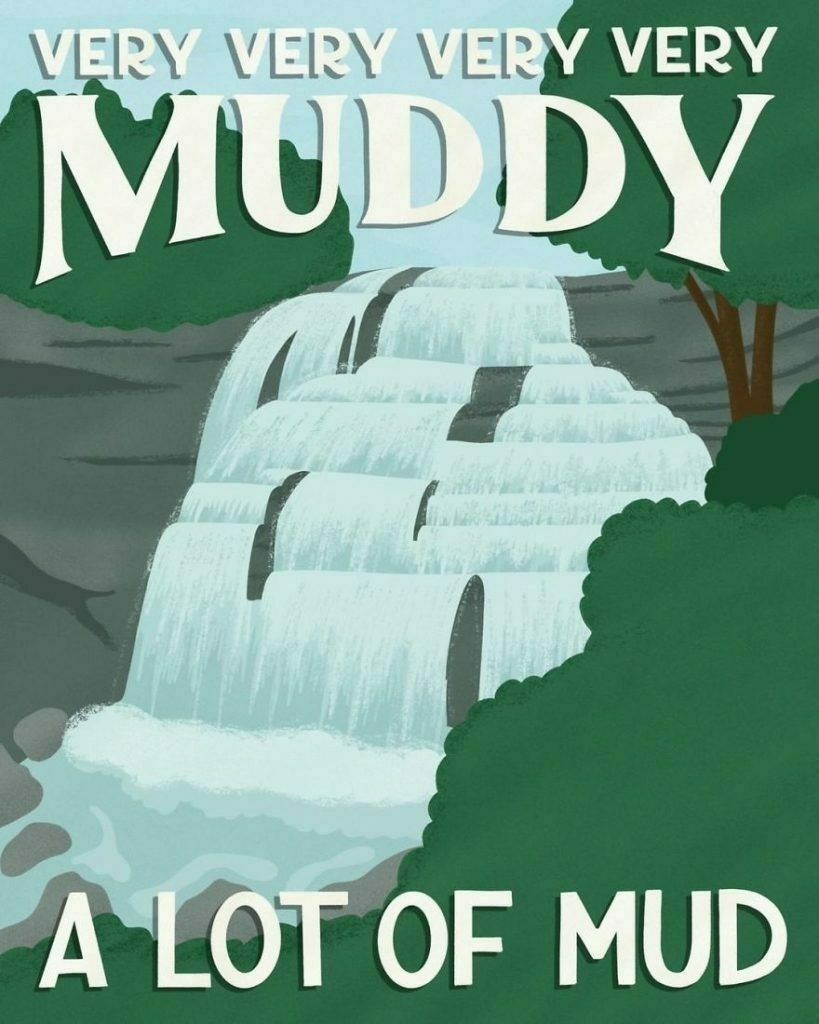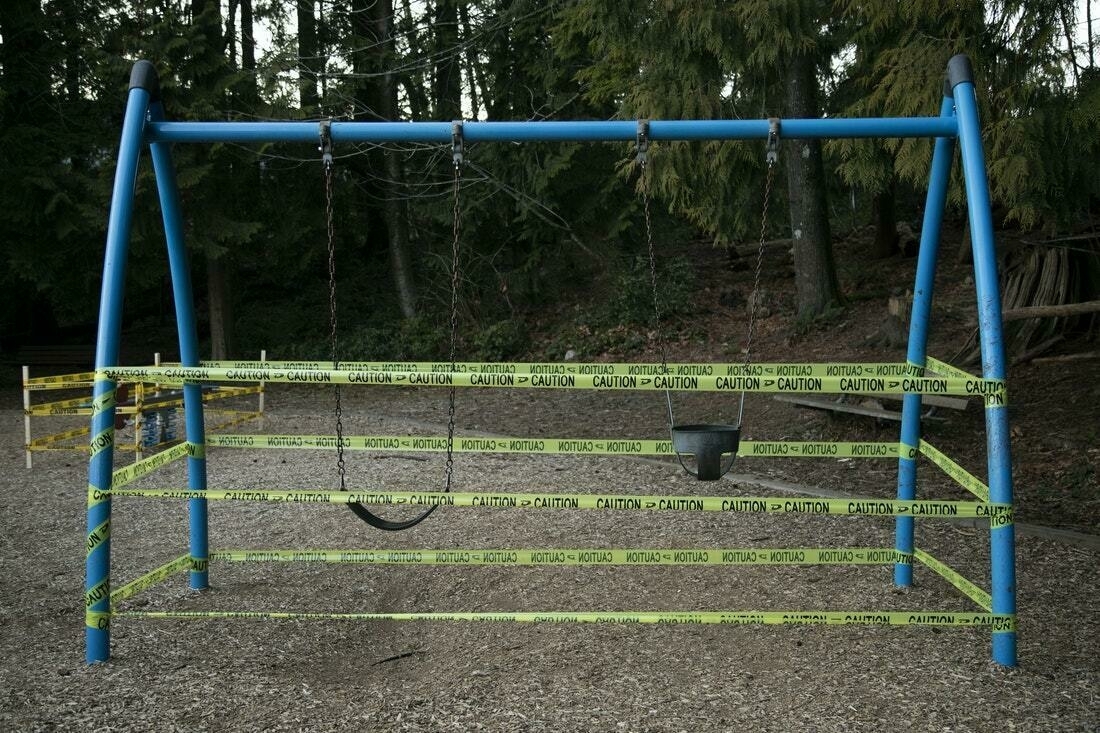Kids need life on the highest volume
This article is based on the author’s experiences as a teacher in state schools in the US. I should imagine the situation is exacerbated there, but it can’t be that great elsewhere, either.
My own kids seem like they’re OK. Our youngest, whose had Covid like me this week, has gone back to remote learning, which she enjoys as she completes her work quickly and then does other things. I think it’s particularly hard on teenagers, like our eldest, who are preparing for important exams.
The data about learning loss and the mental health crisis is devastating. Overlooked has been the deep shame young people feel: Our students were taught to think of their schools as hubs for infection and themselves as vectors of disease. This has fundamentally altered their understanding of themselves.Source: I’m a Public School Teacher. The Kids Aren’t Alright. | Common SenseWhen we finally got back into the classroom in September 2020, I was optimistic, even as we would go remote for weeks, sometimes months, whenever case numbers would rise. But things never returned to normal.
When we were physically in school, it felt like there was no longer life in the building. Maybe it was the masks that made it so no one wanted to engage in lessons, or even talk about how they spent their weekend. But it felt cold and soulless. My students weren’t allowed to gather in the halls or chat between classes. They still aren’t. Sporting events, clubs and graduation were all cancelled. These may sound like small things, but these losses were a huge deal to the students. These are rites of passages that can’t be made up.
[…]
They are anxious and depressed. Previously outgoing students are now terrified at the prospect of being singled out to stand in front of the class and speak. And many of my students seem to have found comfort behind their masks. They feel exposed when their peers can see their whole face.
[…]
At the beginning of the pandemic, adults shamed kids for wanting to play at the park or hang out with their friends. We kept hearing, “They’ll be fine. They’re resilient.” It’s true that humans, by nature, are very resilient. But they also break. And my students are breaking. Some have already broken.
When we look at the Covid-19 pandemic through the lens of history, I believe it will be clear that we betrayed our children. The risks of this pandemic were never to them, but they were forced to carry the burden of it. It’s enough. It’s time for a return to normal life and put an end to the bureaucratic policies that aren’t making society safer, but are sacrificing our children’s mental, emotional, and physical health.
Our children need life on the highest volume. And they need it now.
Friday fumings
My bet is that you've spent most of this week reading news about the global pandemic. Me too. That's why I decided to ensure it's not mentioned at all in this week's link roundup!
Let me know what resonates with you... 😷
Finding comfort in the chaos: How Cory Doctorow learned to write from literally anywhere
My writing epiphany — which arrived decades into my writing career — was that even though there were days when the writing felt unbearably awful, and some when it felt like I was mainlining some kind of powdered genius and sweating it out through my fingertips, there was no relation between the way I felt about the words I was writing and their objective quality, assessed in the cold light of day at a safe distance from the day I wrote them. The biggest predictor of how I felt about my writing was how I felt about me. If I was stressed, underslept, insecure, sad, hungry or hungover, my writing felt terrible. If I was brimming over with joy, the writing felt brilliant.
Cory Doctorow (CBC)
Such great advice in here from the prolific Cory Doctorow. Not only is he a great writer, he's a great speaker, too. I think both come from practice and clarity of thought.
Slower News
Trends, micro-trends & edge cases.
This is a site that specialises in important and interesting news that is updated regularly, but not on an hour-by-hour (or even daily) basis. A wonderful antidote to staring at your social media feed for updates!
SCARF: The 5 key ingredients for psychological safety in your team
There’s actually a mountain of compelling evidence that the single most important ingredient for healthy, high-performing teams is simple: it’s trust. When Google famously crunched the data on hundreds of high-performing teams, they were surprised to find that one variable mattered more than any other: “emotional safety.” Also known as: “psychological security.” Also known as: trust.
Matt Thompson
I used to work with Matt at Mozilla, and he's a pretty great person to work alongside. He's got a book coming out this year, and Laura (another former Mozilla colleague, but also a current co-op colleague!) drew my attention to this.

I Illustrated National Parks In America Based On Their Worst Review And I Hope They Will Make You Laugh (16 Pics)
I'm an illustrator and I have always had a personal goal to draw all 62 US National Parks, but I wanted to find a unique twist for the project. When I found that there are one-star reviews for every single park, the idea for Subpar Parks was born. For each park, I hand-letter a line from the one-star reviews alongside my illustration of each park as my way of putting a fun and beautiful twist on the negativity.
Amber Share (Bored Panda)
I love this, especially as the illustrations are so beautiful and the comments so banal.
What Does a Screen Do?
We know, for instance, that smartphone use is associated with depression in teens. Smartphone use certainly could be the culprit, but it’s also possible the story is more complicated; perhaps the causal relationship works the other way around, and depression drives teenagers to spend more time on their devices. Or, perhaps other details about their life—say, their family background or level of physical activity—affect both their mental health and their screen time. In short: Human behavior is messy, and measuring that behavior is even messier.
Jane C. Hu (Slate)
This, via Ian O'Byrne, is a useful read for anyone who deals with kids, especially teenagers.
13 reads to save for later: An open organization roundup
For months, writers have been showering us with multiple, ongoing series of articles, all focused on different dimensions of open organizational theory and practice. That's led to to a real embarrassment of riches—so many great pieces, so little time to catch them all.
So let's take moment to reflect. If you missed one (or several) now's your chance to catch up.
Bryan Behrenshausen (Opensource.com)
I've already shared some of the articles in this roundup, but I encourage you to check out the rest, and subscribe to opensource.com. It's a great source of information and guidance.

It Doesn’t Matter If Anyone Exists or Not
Capitalism has always transformed people into latent resources, whether as labor to exploit for making products or as consumers to devour those products. But now, online services make ordinary people enact both roles: Twitter or Instagram followers for conversion into scrap income for an influencer side hustle; Facebook likes transformed into News Feed-delivery refinements; Tinder swipes that avoid the nuisance of the casual encounters that previously fueled urban delight. Every profile pic becomes a passerby—no need for an encounter, even.
Ian Bogost (The Atlantic)
An amazing piece of writing, in which Ian Bogost not only surveys previous experiences with 'strangers' but applies it to the internet. As he points out, there is a huge convenience factor in not knowing who made your sandwich. I've pointed out before that capitalism is all about scale, and at the end of the day, caring doesn't scale, and scaling doesn't care.
You don't want quality time, you want garbage time
We desire quality moments and to make quality memories. It's tempting to think that we can create quality time just by designating it so, such as via a vacation. That generally ends up backfiring due to our raised expectations being let down by reality. If we expect that our vacation is going to be perfect, any single mistake ruins the experience
In contrast, you are likely to get a positive surprise when you have low expectations, which is likely the case during a "normal day". It’s hard to match perfection, and easy to beat normal. Because of this, it's more likely quality moments come out of chance
If you can't engineer quality time, and it's more a matter of random events, it follows that you want to increase how often such events happen. You can't increase the probability, but you can increase the duration for such events to occur. Put another way, you want to increase quantity of time, and not engineer quality time.
Leon Lin (Avoid boring people)
There's a lot of other interesting-but-irrelevant things in this newsletter, so scroll to the bottom for the juicy bit. I've quoted the most pertinent point, which I definitely agree with. There's wisdom in Gramsci's quotation about having "pessimism of the intellect, optimism of the will".
The Prodigal Techbro
The prodigal tech bro doesn’t want structural change. He is reassurance, not revolution. He’s invested in the status quo, if we can only restore the founders’ purity of intent. Sure, we got some things wrong, he says, but that’s because we were over-optimistic / moved too fast / have a growth mindset. Just put the engineers back in charge / refocus on the original mission / get marketing out of the c-suite. Government “needs to step up”, but just enough to level the playing field / tweak the incentives. Because the prodigal techbro is a moderate, centrist, regular guy. Dammit, he’s a Democrat. Those others who said years ago what he’s telling you right now? They’re troublemakers, disgruntled outsiders obsessed with scandal and grievance. He gets why you ignored them. Hey, he did, too. He knows you want to fix this stuff. But it’s complicated. It needs nuance. He knows you’ll listen to him. Dude, he’s just like you…
Maria Farrell (The Conversationalist)
Now that we're experiencing something of a 'techlash' it's unsurprising that those who created surveillance capitalism have had a 'road to Damascus' experience. That doesn't mean, as Maria Farrell points out, that we should all of a sudden consider them to be moral authorities.
Enjoy this? Sign up for the weekly roundup, become a supporter, or download Thought Shrapnel Vol.1: Personal Productivity!
What do happy teenagers do?
This chart, via Psychology Today, is pretty unequivocal. It shows the activities correlated with happiness (green) and unhappiness (red) in American teenagers:

I discussed this with our eleven year-old son, who pretty much just nodded his head. I’m not sure he knew what to say, given that most of the things he enjoys doing in his free time are red on that chart!
Take a look at the bottom of the chart: Listening to music shows the strongest correlation with unhappiness. That may seem strange at first, but consider how most teens listen to music these days: On their phones, with earbuds firmly in place. Although listening to music is not screen time per se, it is a phone activity for the vast majority of teens. Teens who spend hours listening to music are often shutting out the world, effectively isolating themselves in a cocoon of sound.This stuff isn't rocket science, I guess:
There’s another way to look at this chart – with the exception of sleep, activities that usually involve being with other people are the most strongly correlated with happiness, and those that involve being alone are the most strongly correlated with unhappiness. That might be why listening to music, which most teens do alone, is linked to unhappiness, while going to music concerts, which is done with other people, is linked to happiness. It’s not the music that’s linked to unhappiness; it’s the way it’s enjoyed. There are a few gray areas here. Talking on a cell phone and using video chat are linked to less happiness – perhaps because talking on the phone, although social connection, is not as satisfying as actually being with others, or because they are a phone activities even though they are not, strictly speaking, screen time. Working, usually done with others, is a wash, perhaps because most of the jobs teens have are not particularly fulfilling.I might pin this up in the house somewhere for future reference...
Source: Psychology Today
